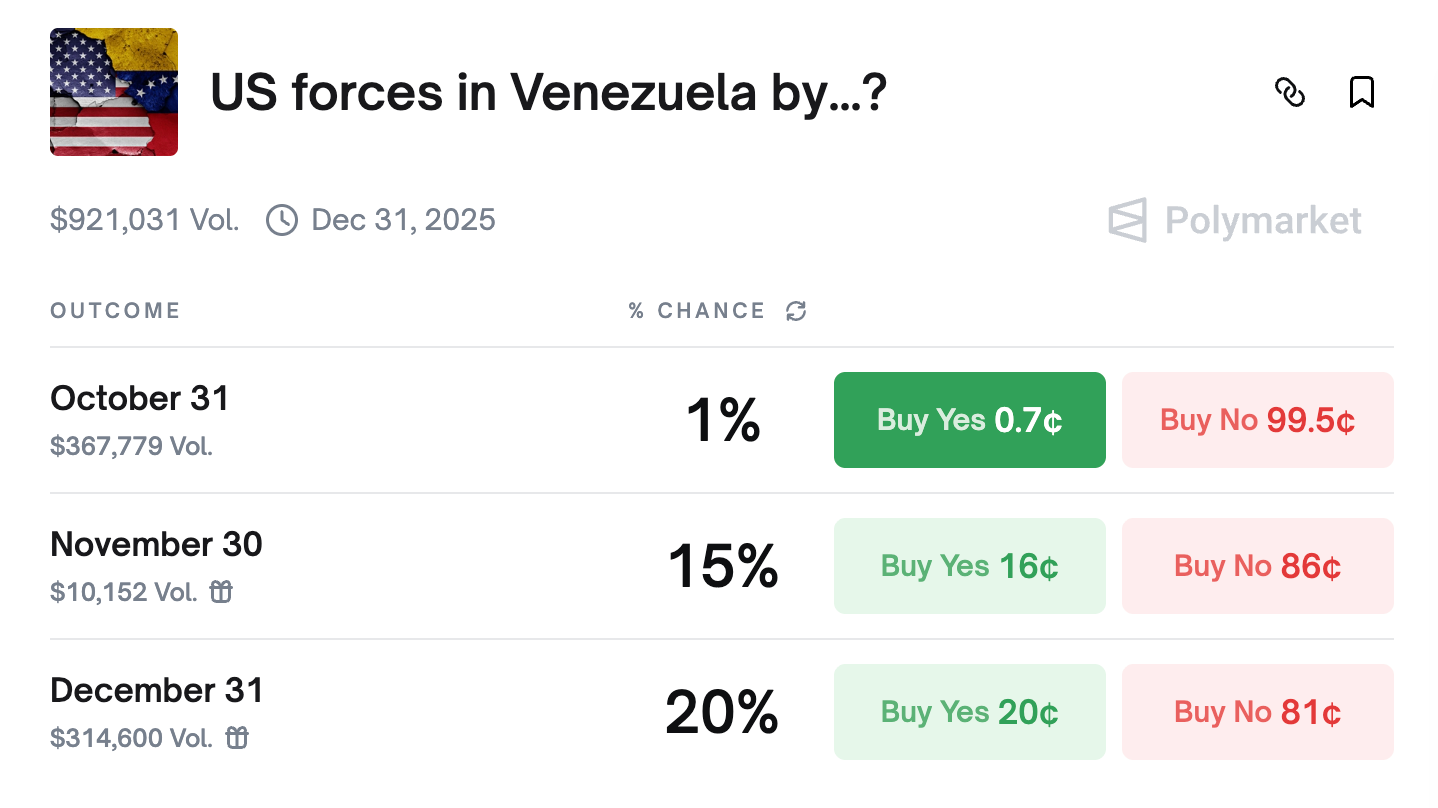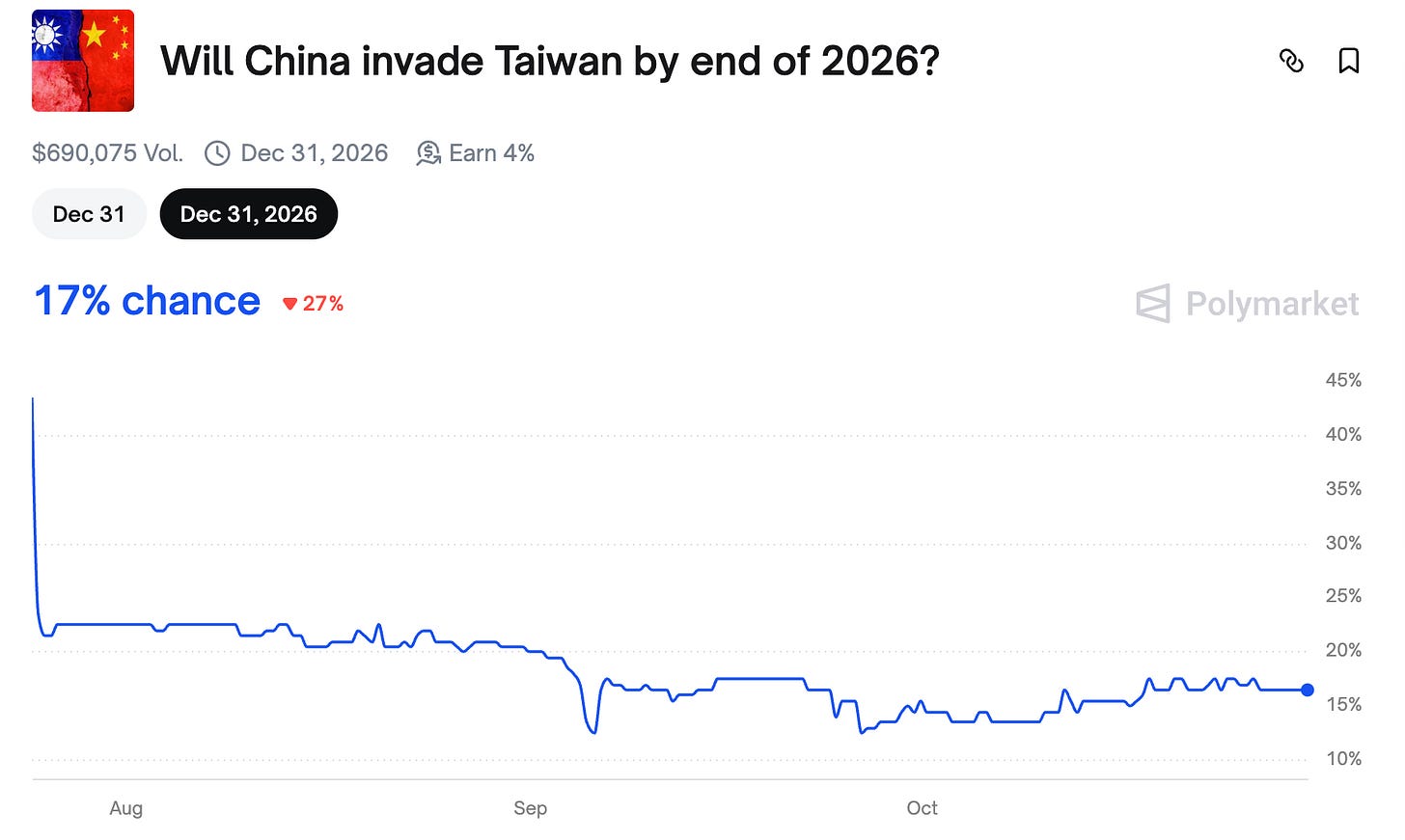🔮 LEVERAGE
Top China Substacker Bill Bishop on what's next after the Trump-Xi meeting
Bill Bishop is the author of Sinocism, the top China Substack. He spoke with The Oracle about Xi’s preparations for Trump’s second term, what leverage China has over Trump, and why predictions about Xi’s exit and Taiwan need major recalibration.
This interview has been edited for length. All answers are his own.
How does Xi Jinping size up Trump? What are his go-to strategies to push back on the tariffs?
The $64 trillion question. From the Chinese perspective, there’s no doubt they’re in a long-term competition with the United States in basically every domain. With Trump, they see an opportunity to cut some deals that allow for near-term stabilization that give China space to keep doing what it wants to do.
They’re not expecting any significant breakthrough where the relationship is hunky dory. But in the near term, the Chinese side is feeling confident. They were much better prepared this round than in the first term for trade frictions.
How did China manage to neutralize Trump’s 100% tariff threat?
The 100% tariffs and the threat around export controls on critical software was a US response to China rolling out an expanded export control regime around rare earths, rare earth magnets, EV batteries, battery technology, and super hard materials like industrial diamonds that have critical uses across all industries in the US and other major economies.
This export control regime is something the Chinese built during Biden as a way to have countermeasures to blunt US leverage. Their reaction to Trump’s response was: they don’t want 100% additional tariffs, but we already did this in April and the US pulled back after China rolled out some things. It was deja vu all over again.
The Chinese recognized that, yes, 100% tariffs would cause pain in their economy. But the US president already said back in April and May it was unsustainable because it effectively means no trade between the US and China.
What are the other pressure points China has over the US?
The biggest ones they’ve been using are agriculture and rare earths. Farmers are a small but important constituency for the GOP and Trump. The Chinese have mapped by congressional district what the vulnerabilities are around exports to China. They learned in the first Trump trade war they could use soybeans and sorghum by holding off purchases. It was embarrassing for Trump. He was talking about having to cough up billions of dollars in welfare for farmers.
They also have leverage over active pharmaceutical ingredients, which the US is far too reliant on China for. But if they started messing with that or cutting it off, medicines would go into shortage, and that would be seen by some in DC as almost akin to an act of war.
On energy purchases, the Chinese don’t have much leverage because there are so many other buyers for US LNG. They used to be able to use Boeing aircraft purchases as leverage, but they haven’t purchased a plane since 2019 and Boeing’s order backlog is booked out to 2031.
But with controls around rare earth magnets, China can shut down factories in a matter of weeks or a couple of months.
What was surprising for the Trump administration was they didn’t fully appreciate how much better prepared the Chinese were this time than in Trump one. They overestimated US leverage. The US has things they could do to cause pain for Xi Jinping and the Chinese economy, but those things would also cause pain here, whereas in Trump one it was more cost-free for the US.
Polymarket has Trump launching a military strike on Venezuela at 19%. What do you think?
I’d be shocked if it happened. Every time Trump tries to talk tough on Venezuela and create some sort of dynamic there, it ends up blowing up in his face. I just don’t see it happening. I’d put the odds closer to 5%, maybe 10% at most.
I ask that because I hear some saying Trump won’t invade Venezuela because that would use up missiles and stockpiles needed for a China-Taiwan contingency? And the worry that US missile components are made in China.
That same argument was made for the aerial campaign against the Houthis in Yemen, helping Israel with missile defense in both Gaza and Iran, and sales to Ukraine. Yet the US did all those things.
There’s no question the US still has some significant dependencies on Chinese supplies for critical minerals, rare earths, and rare earth magnets. DOD has been trying for years to reduce that, and I think they’re in better shape than the car companies, but it’s still a big problem.
But I don’t think China would be the reason why the US would or would not do something in Venezuela. If folks in the administration are really gung ho about doing something, I don’t think concerns about saving ammunition for a China contingency are going to be the thing that decides against it.
Health, coup rumors, etc, what are the plausible scenarios you see where Xi is out of power in the near term?
I talked a lot in my newsletter about how those rumors were nuts. If I wanted to bet he stays in power, I’d be buying at 84 cents for a dollar payout. That’s not a great bet right now though. You want to wait for the next rumor spike when it goes to like 40% and then buy.
Barring a health incident (he’s 72 and a half, has been a smoker, kind of overweight, stressful job) I think the odds are very, very close to zero that there would be some sort of internal push inside China that would get rid of him. So it’s really just betting on whether or not the guy drops dead or becomes incapacitated. That’s how I look at it.
What about China and the Ukraine war? Does China want to see the war continue?
They’re happy to see it continue. They don’t have negative incentives to see it stop. There haven’t been any real significant sanctions on China or penalties for supporting Russia.
The EU, which you would think would be the body most upset about China allowing Russia to continue the largest land war in Europe since World War II, has been completely feckless.
The Chinese are getting a ton of benefit out of propping up Putin, building their ties with Russia, learning all sorts of lessons about modern battlefields and warfare, how US and Western weapons work, how countermeasures work. They’re getting all upside at this point.
Until somehow that calculation changes, either a positive offer or much more significant penalties, which I don’t think either the US or EU is willing to do, the Chinese don’t care about how many people are dying. They’re happy to see it continue. It furthers their strategic goals.
It also distracts the US. Wang Yi, the Chinese foreign minister, has told EU leadership they don’t want the war to end because it’s distracting the US and keeping them from putting all their focus on competition with China.
They’re waging a proxy war on the cheap. It’s brilliant from the Chinese perspective. All sorts of upside for them, and they’re very cynical about it. Why wouldn’t they be?
Let’s talk timelines on Taiwan. How do you think about when something might happen?
The various timelines out there in the media - 2027 and all that - I think those are wrong.
I personally believe it’s an issue Xi Jinping wants resolved during his reign. Their preferred approach is some sort of political, peaceful accommodation. But they’re clearly taking a two-track approach. They are preparing for contingencies where they have to use various scenarios, from quarantine blockade up to invasion, where they would have to use a more kinetic approach to achieving those political goals.
At the same time, they’re also offering all sorts of goodies to the Taiwanese people, propaganda work, infiltration and influence work to convince Taiwan that resistance is futile and life will actually be better if they have some sort of condominium with China.
My timeline is that the odds of a resolution - quote unquote resolution - are very high within Xi Jinping’s reign. That goes back to the other question: how long is that? He’s 72-73. He’s a decade younger than Joe Biden was when he stepped down. There’s no reason he can’t be running the country for at least 10 more years.
That gives at least a decade before they’d have to make a decision: if Taiwan’s not willing to play ball politically, then we’re going to have to do something. In 10 years, the balance of power will have shifted so much that the buildup and exercises the Chinese do are designed to convince the Taiwanese that resistance is futile.
I think there will be some sort of resolution within a decade. But I don’t think there’s a hard “has to be done by 2027” deadline. I think that’s overstating the case.
I hope I’m wrong - I could be wrong - and then it’s going to be a disaster.
What other China polymarkets would you like to see ?
Is there one on Nvidia selling Blackwells to China? That would be interesting.
The Chinese want certain things - they want export controls around high bandwidth memory gone, because that’s one of their bottlenecks in chip production. They would love the ASML extreme ultraviolet machines, which have been blocked for years. But there’s also the more advanced DUV machines that they can’t buy either, that they still can’t actually replicate.
There are still some pressure points, but they’re working hard on it. Some of that stuff is probably going to take a long time to fix. If they were able to get relief around high bandwidth memory, they could do a lot more with the technology they currently have.
Disclaimer
Nothing in The Oracle is financial, investment, legal or any other type of professional advice. Odds and pricing are time sensitive. Anything provided in any newsletter is for informational purposes only and is not meant to be an endorsement of any type of activity or any particular market or product. Terms of Service on polymarket.com prohibit US persons and persons from certain other jurisdictions from using Polymarket to trade, although data and information is viewable globally.









Here's a polymarket bet I'd like to see.
Will ASML sell advanced litho machines to china within next year?
Nice deal to be had in return for NXP chips before car makers get completely frozen
Good framing by Bill, agreed on most points.
While the US only recently woke up under Trump - partially in his first term, and a lot more so now - China has been planning for the long-term for decades, with a systematic view to remove dependencies. This complementary piece below may be helpful to those wanting to connect the dots.
https://aquavis.substack.com/p/china-and-the-xi-agenda